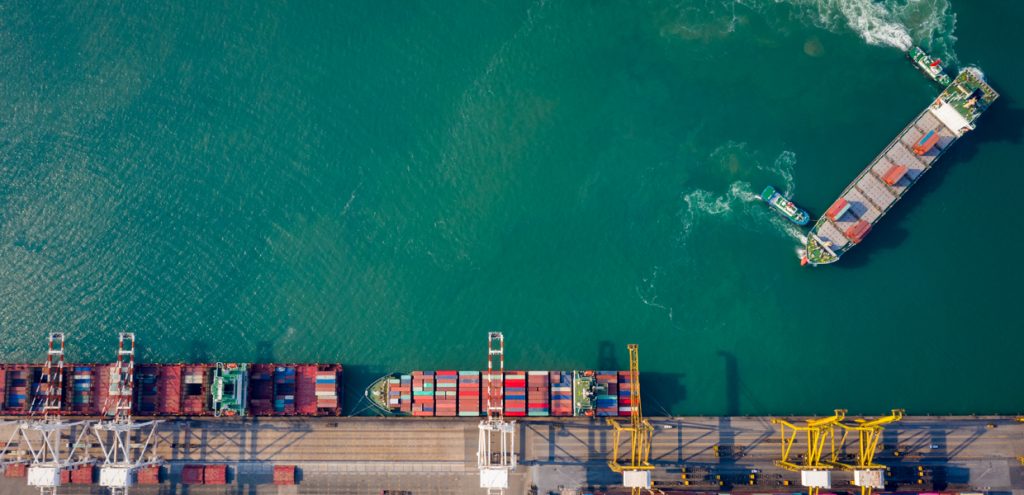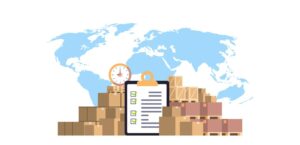About 90% of the world’s goods and cargo that is shipped internationally is done through the ocean freight industry. Most of this is performed by container ships that move over 200 million shipping containers by sea, every year. Ocean freight is one of the most important components of the global supply chain and offers worldwide economic benefits to a variety of businesses that import and export goods.
Most of what we buy in our favourite stores and through online shops has been shipped via one of the many regular routes and fixed schedules of the global shipping network. Billions of tons of cargo travel these routes every year and deliver the goods and produce that we have come to enjoy access to in the modern day.
Ocean freight makes use of high-capacity, long-haul container ships that can move incredible amounts of cargo to every port on the planet. Ocean freight services take a little longer than other transportation modes, depending on the time of year, port congestion can cause delays at the beginning or end of a trip. However, there is no competitor to the vast quantities that these container ships can move (up to 20,000 containers per ship) and how well the costs of this shipping method scale up.
Here are some FAQs about the ocean freight industry that we hope to answer:
What is the ocean freight industry?
Ocean freight is one of the big three transportation modes used in some combination to move cargo around the world. Road and air freight have many benefits, but cannot achieve what ocean freight does. International shipping across the sea allows importers and exporters to move huge quantities of goods to anywhere in the world. These goods are packed into large containers, loaded onto these vessels, and delivered to the destination country with little fuss and in the same condition.
What types of cargo are shipped on the ocean?
A freight forwarding service or shipping agent can help you determine whether ocean freight is the right transport mode for your cargo or business. A general rule of thumb you can follow is: if it is over 100 kg or consists of multiple cartons of goods, you should send it by ship. There are few limits on what can be shipped on the seas. You can ship dangerous goods under certain conditions, perishable or frozen items in special containers and even dry goods, like sugar and salt.
How does international ocean freight work?
Ocean freight shipping begins with the packing of your goods into a shipping container and onto a ship. A freight forwarder will usually help ensure that your cargo is packed correctly after booking the container and a space onboard with the appropriate shipping company. Shipments will move through customs clearance and other transport agencies as it leaves the port and reaches its destination. After all duties and taxes are paid, the goods are released from customs agencies and moved onto another mode of transport.
How big are the container loads sent by sea?
There are two main types of container loads shipped via ocean freight. This is to do with the amount and type of cargo being shipped. LCLs (or Less-than-Container Loads) are shipments where goods cannot fill an entire container and can be shipped with other goods in a shared container. FCLs (or Full-Container Loads) are when a buyer, seller or mover has enough cargo to fill an entire container and warrant the use of a dedicated container (up to 28 tons).
How long do ocean freight shipments take?
There are multiple factors that will affect the time it takes for an ocean freight shipment to reach its destination. This is because there are several requirements that need to be satisfied at each stage in the shipping process. It will be affected by what shipping company you use, the time it takes to clear customs, where your shipment is originating from, having the right documentation and the time at sea. Ocean freight takes a little longer (up to a few weeks) to allow for much larger cargo loads and shipping options than any other transportation mode.
When to choose ocean freight shipping?
Shipping by sea is a cost-effective and reliable solution for buyers and sellers that are trying to move bulk goods and large cargo around the globe. Ocean freight is the most affordable and trustworthy transportation method for importers and exporters who prioritise scale over time. If you are planning on shipping heavy loads, ocean freight services can provide the extra space you need.
What affects ocean freight rates?
As the size of your shipment grows, the more likely it is that you will find ocean freight services to be the most affordable shipping option. For almost any type of cargo over 200 kg, ocean freight is the most reliable and safest option. However, there are five main factors that can impact ocean freight costs: fuel/bunker prices, forex, seasons, capacity, and location. Each of these categories can increase or decrease the ocean freight rates offered to you.
Those are some of the most frequently asked questions circulating around the ocean freight industry. Hopefully, you will have a better understanding of how international sea shipping works, what types and sizes of cargo are best suited for ocean freights and how to account for the costs and benefits of transporting heavy loads on the ocean.
M6T have been established as a trusted and comprehensive freight forwarding and logistics partner for many years. We have a global network that spans across the international shipping industry and helps us provide world-class ocean, air and road freight forwarding services for our clients. Consider M6T today, for all of your ocean freight forwarding needs.



